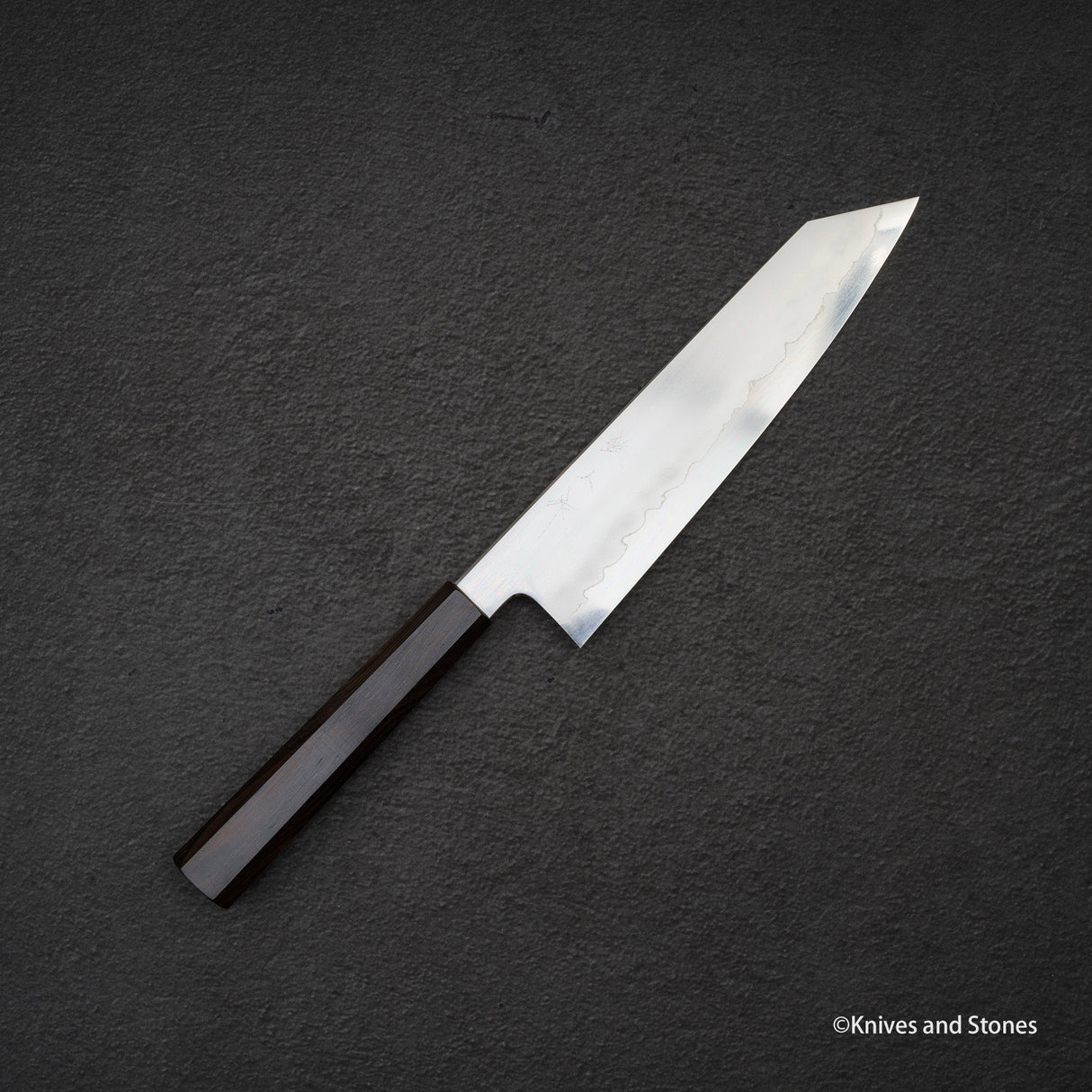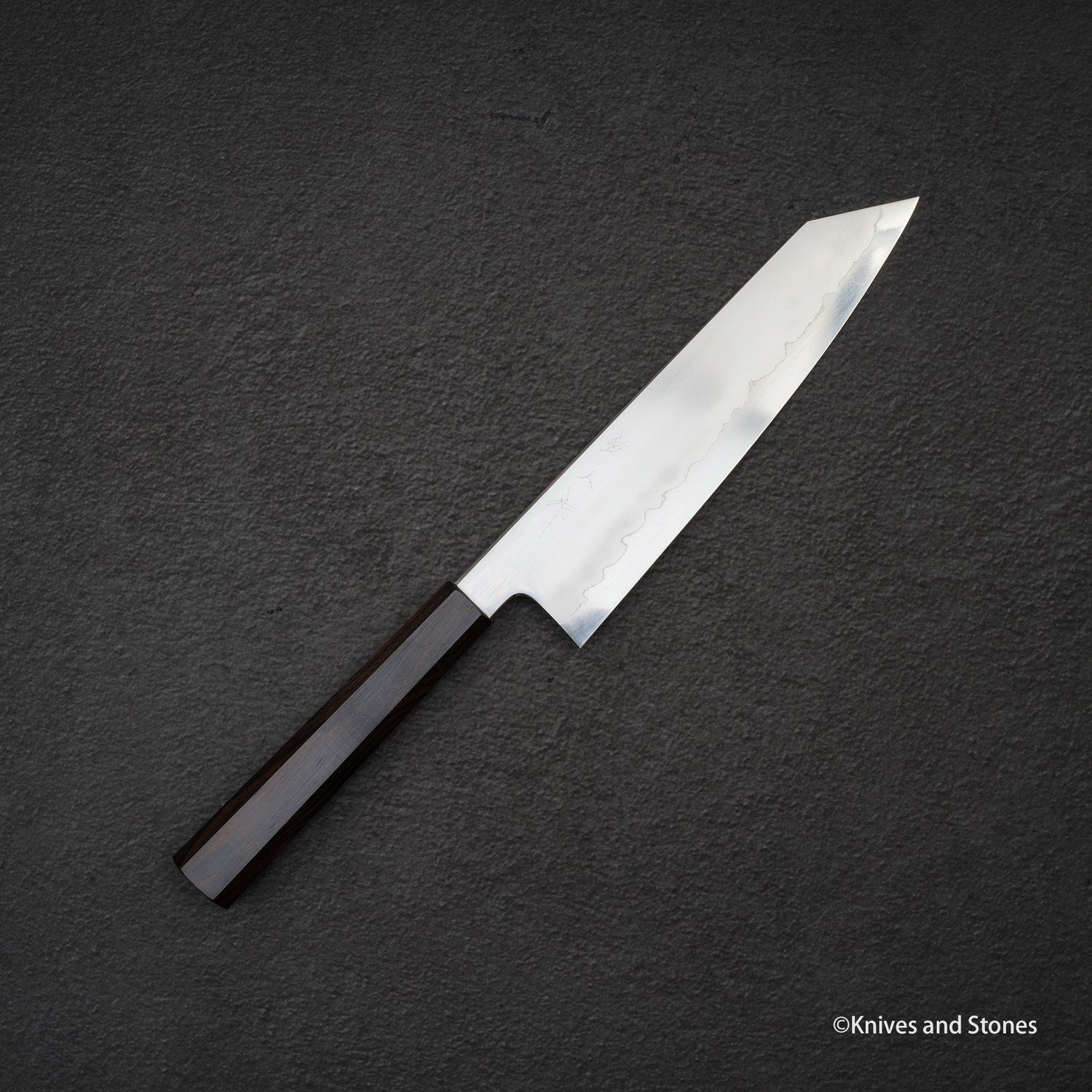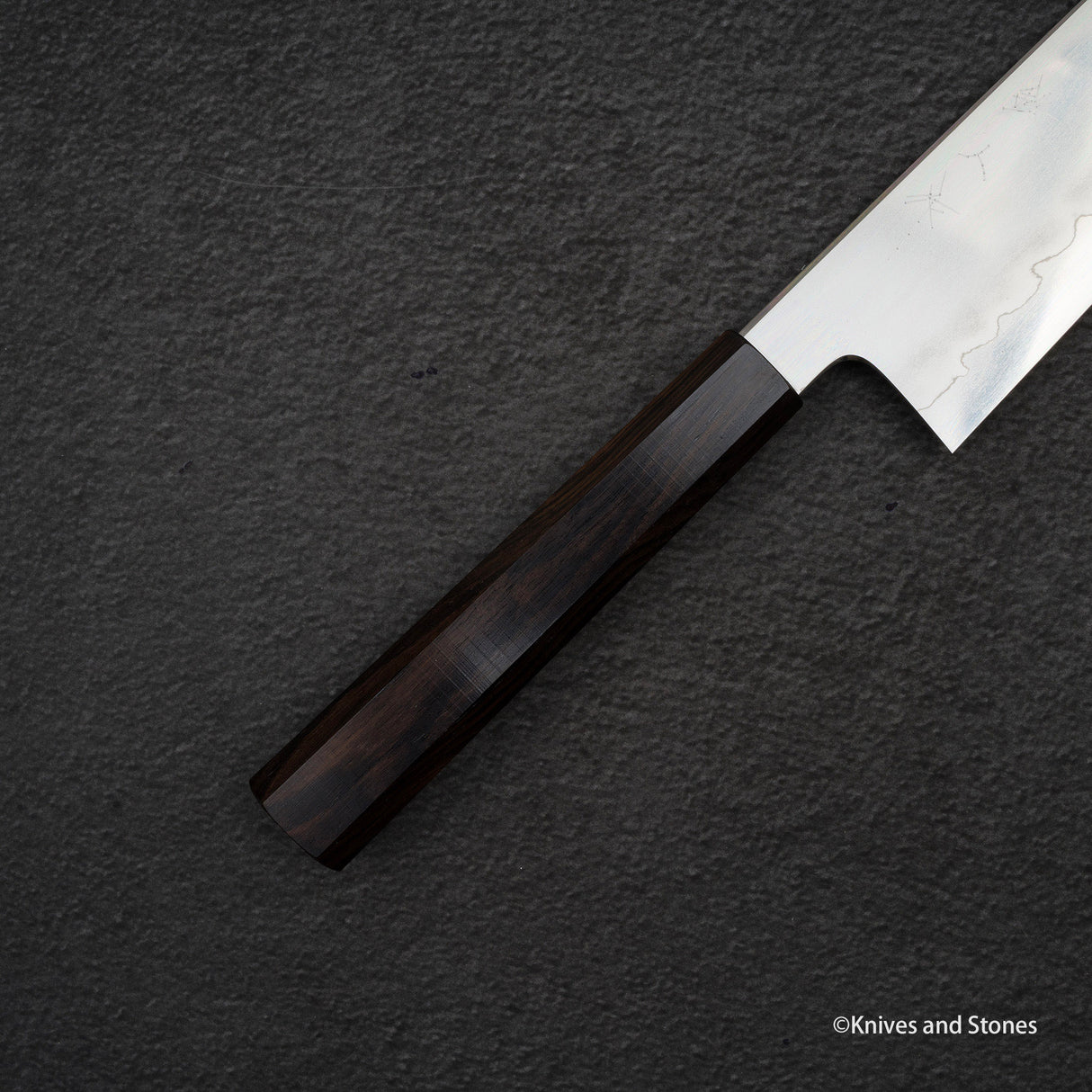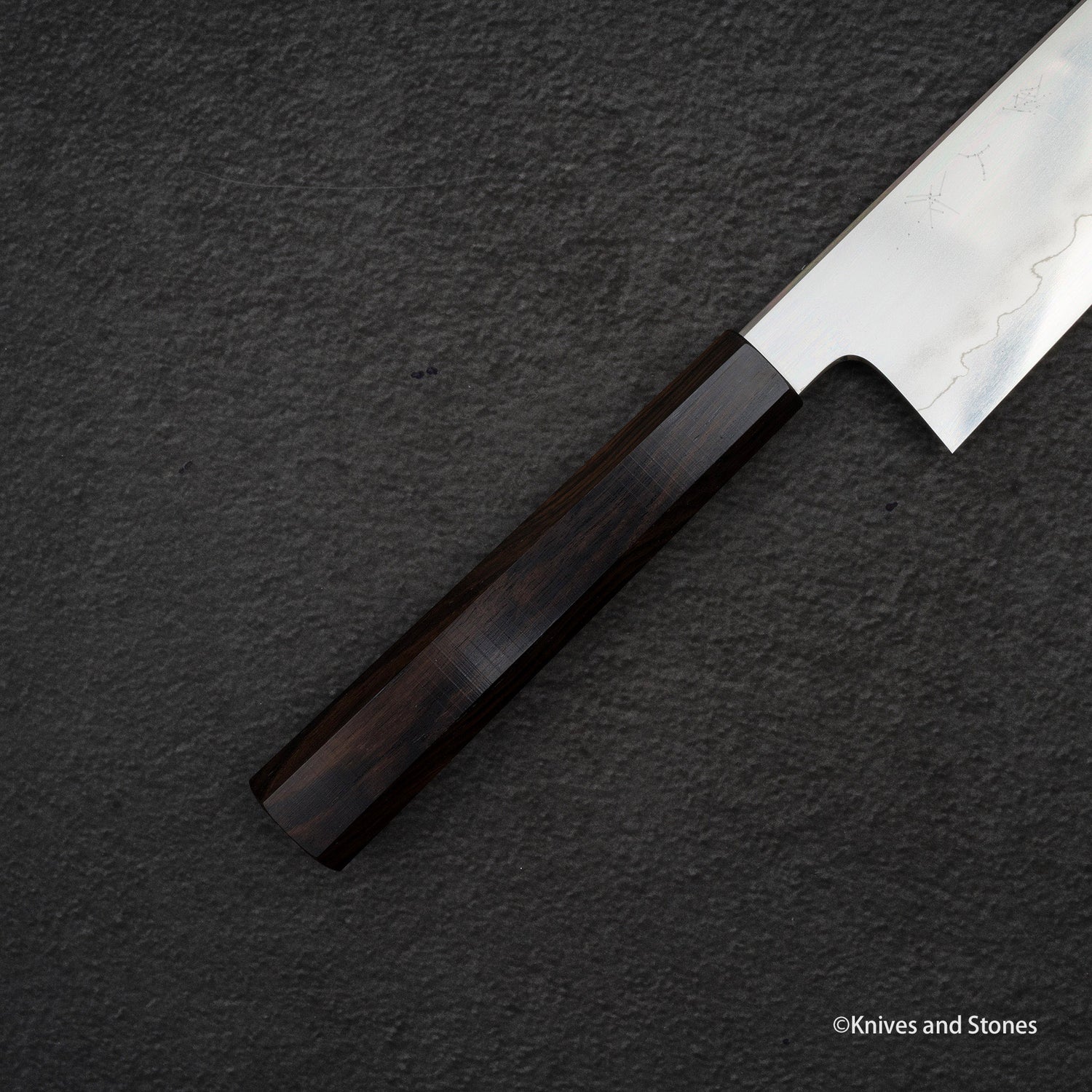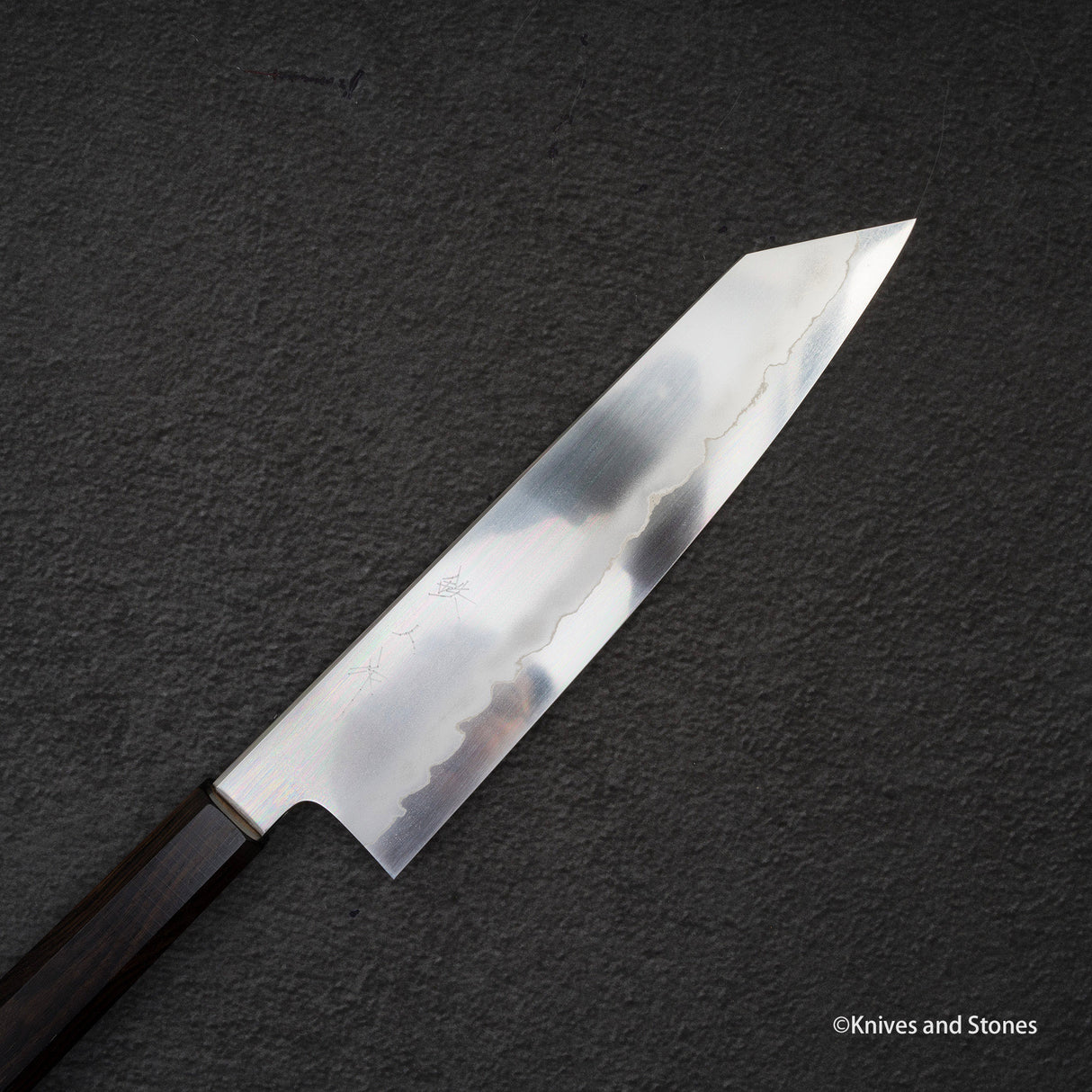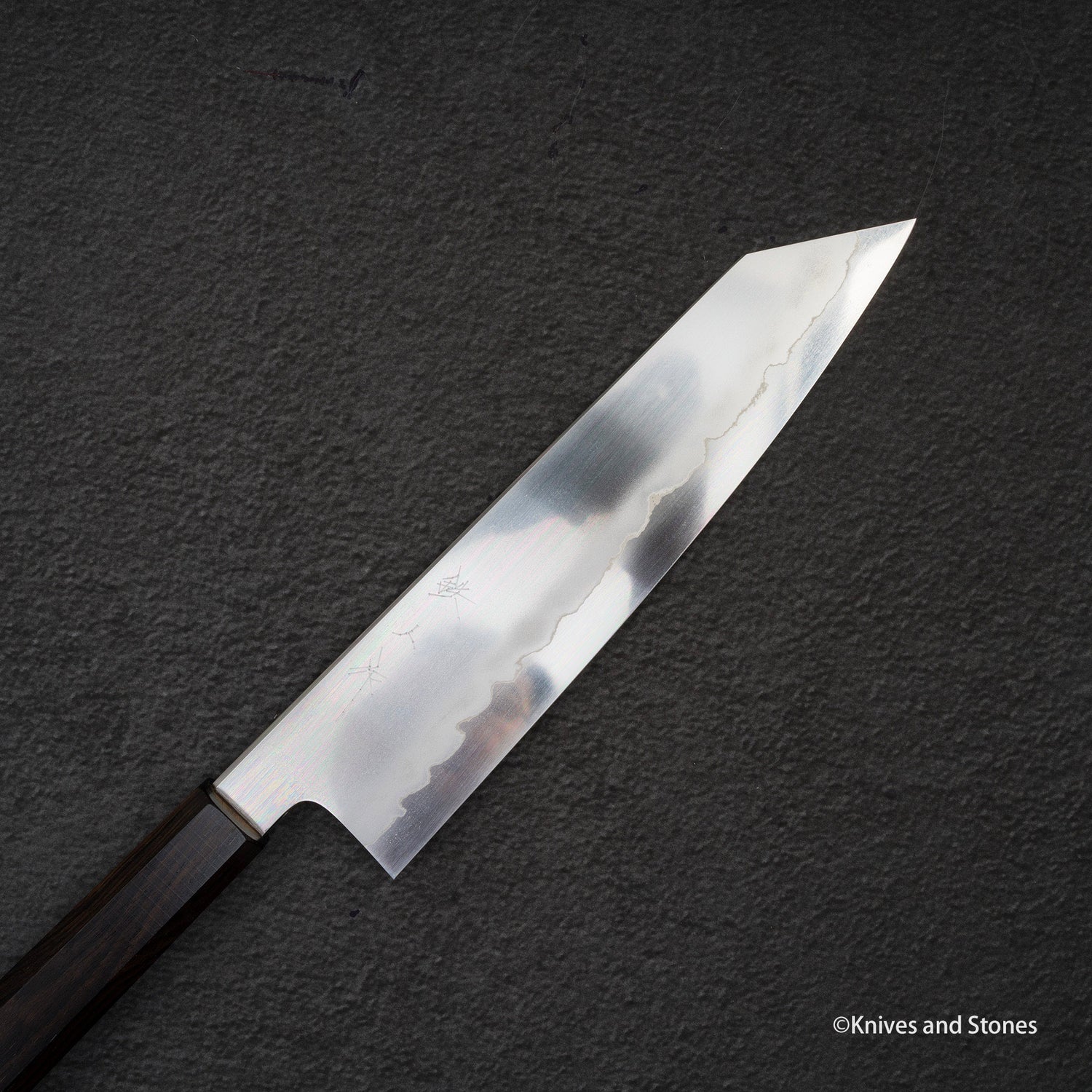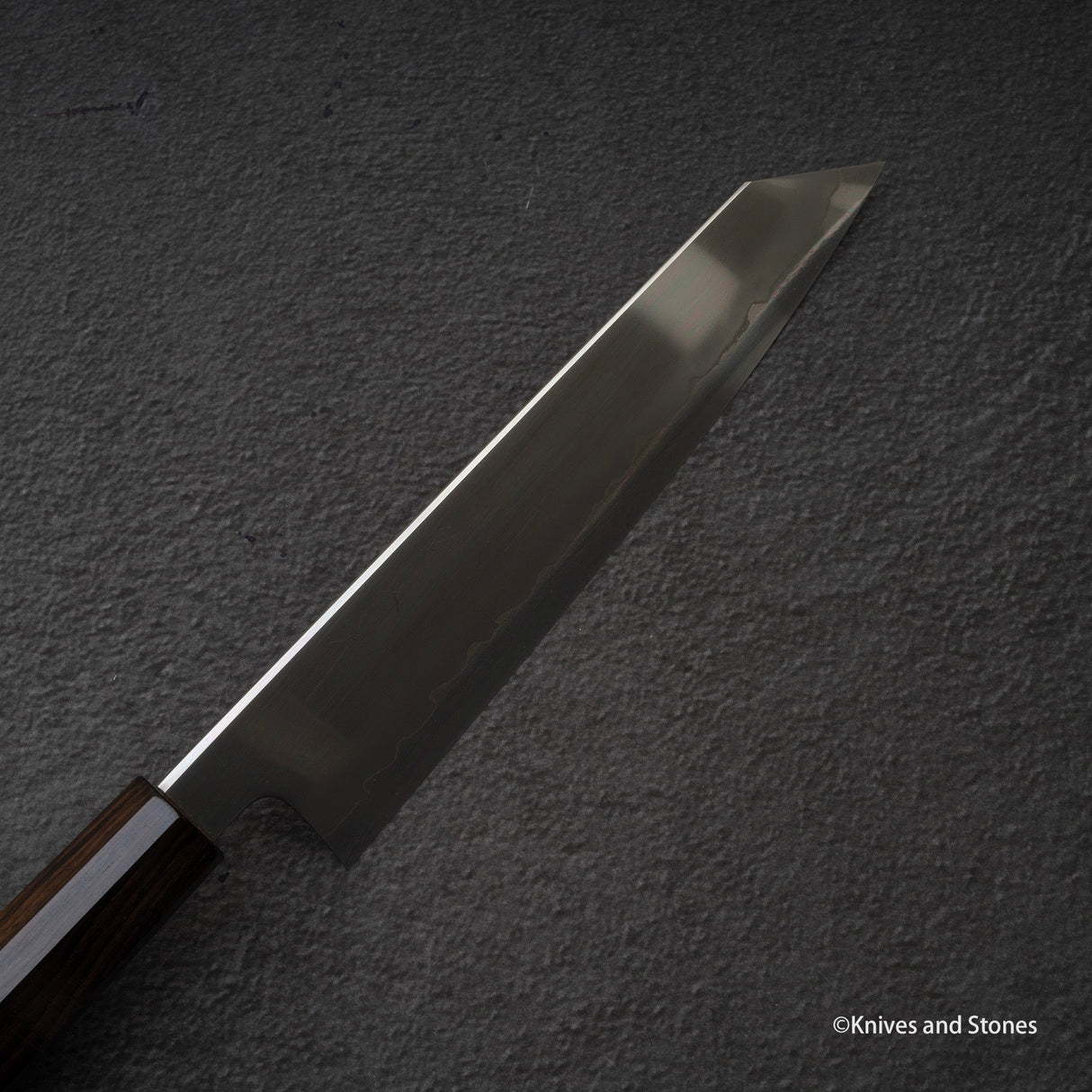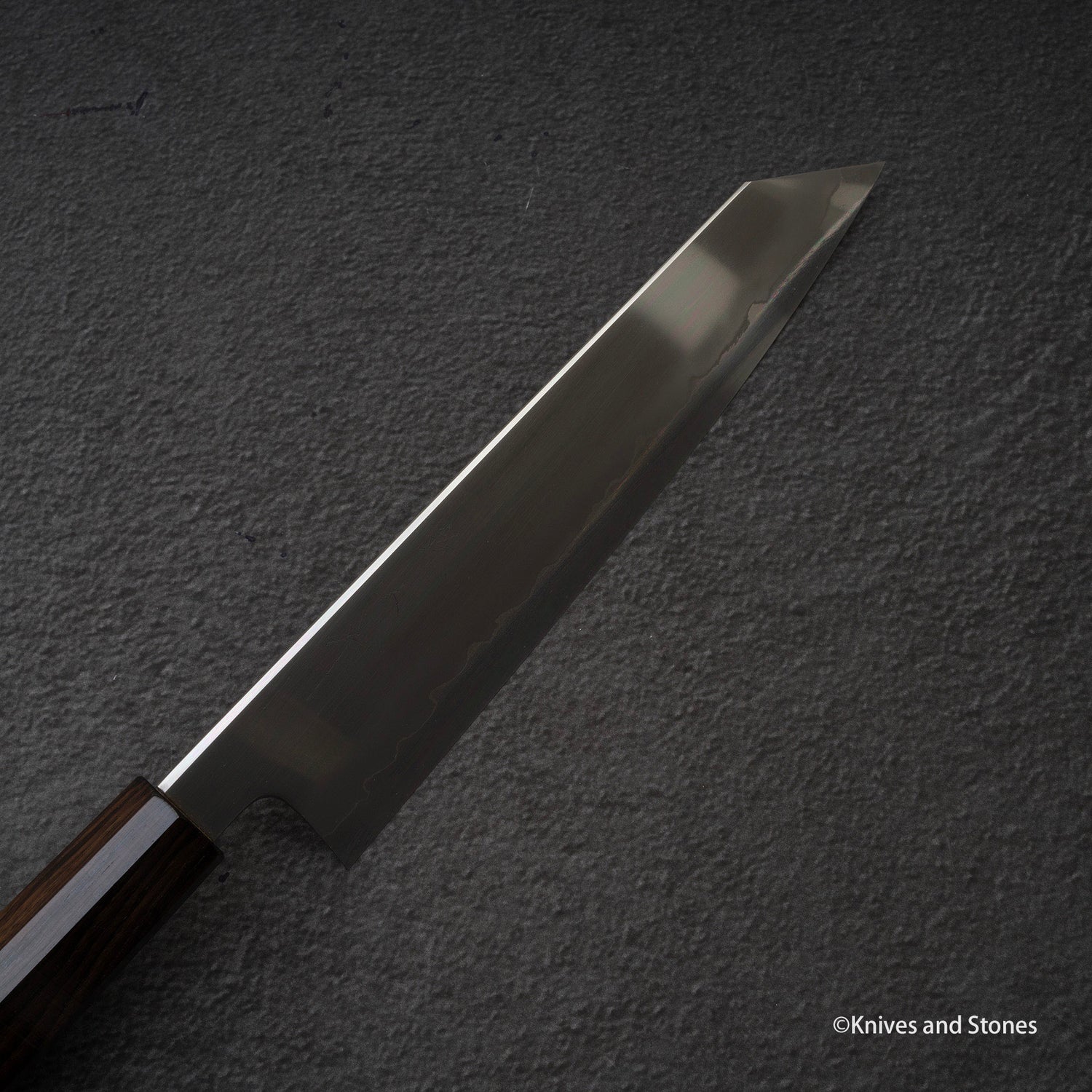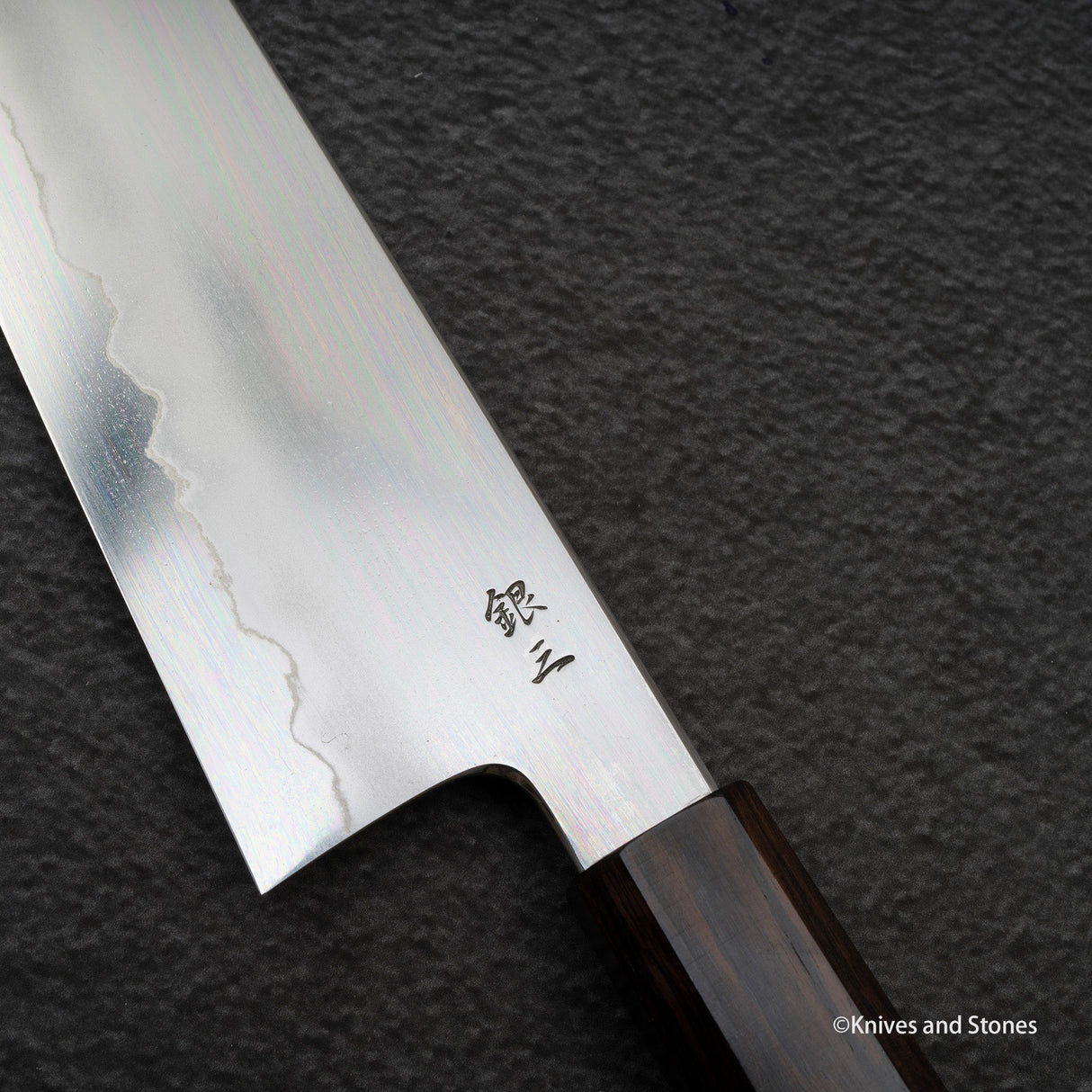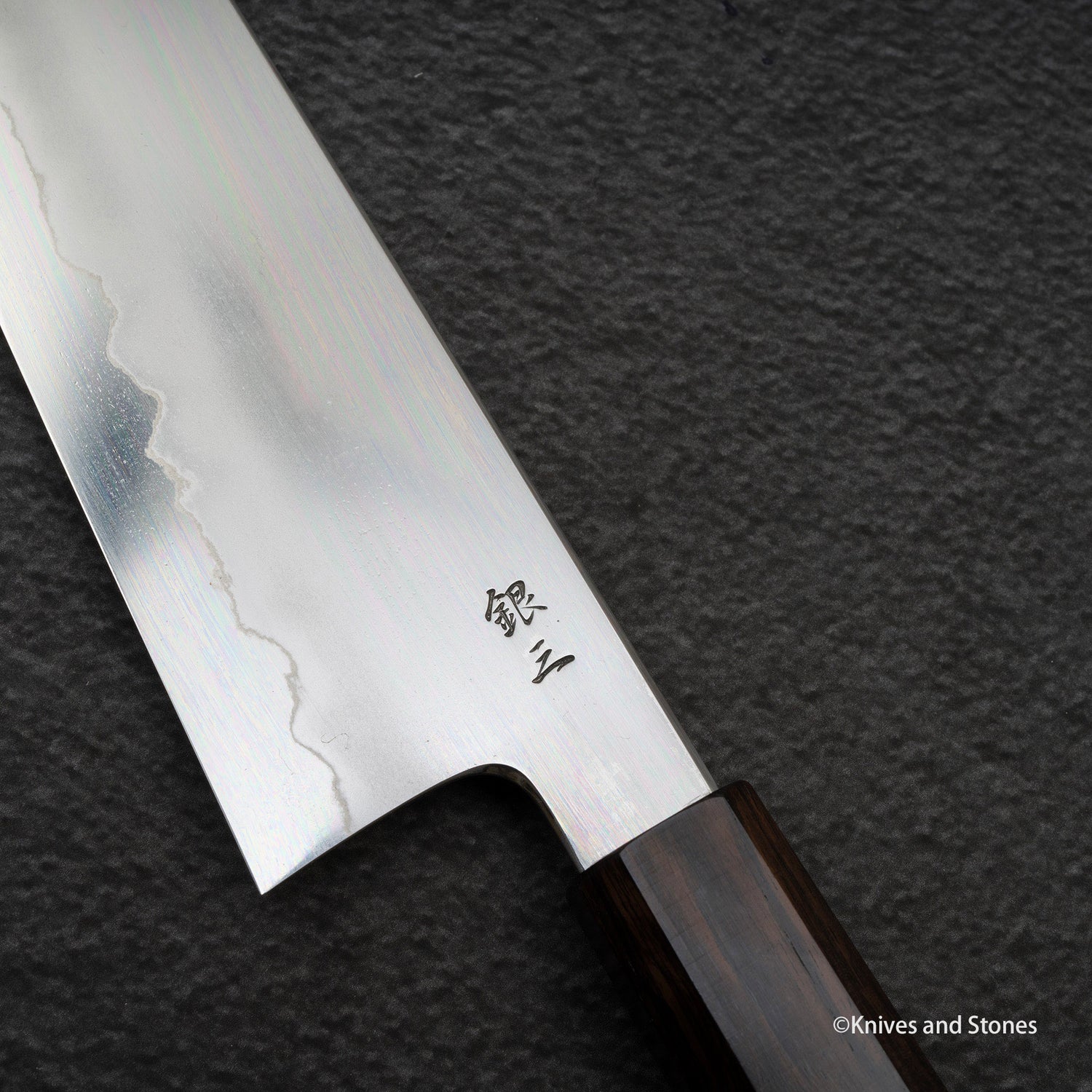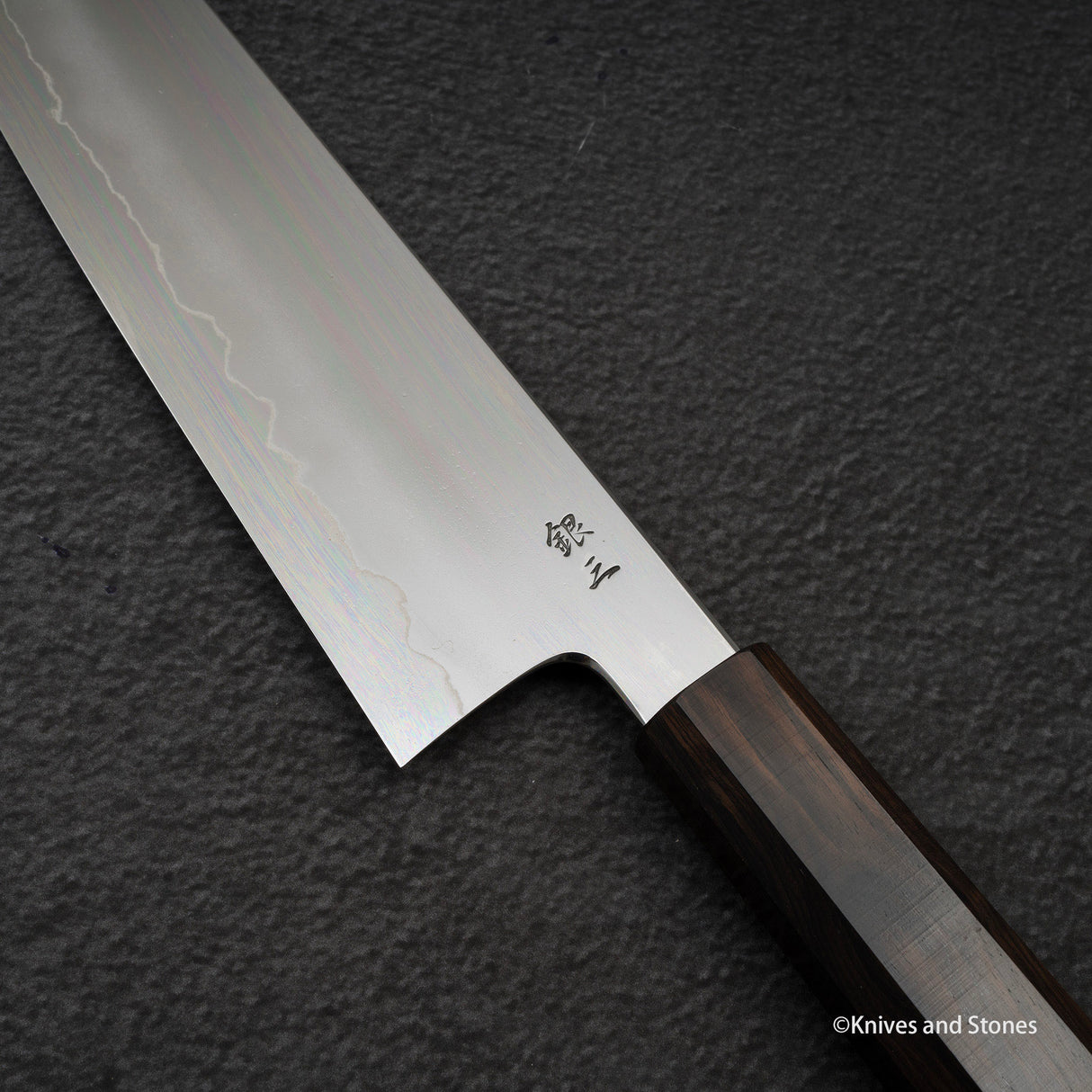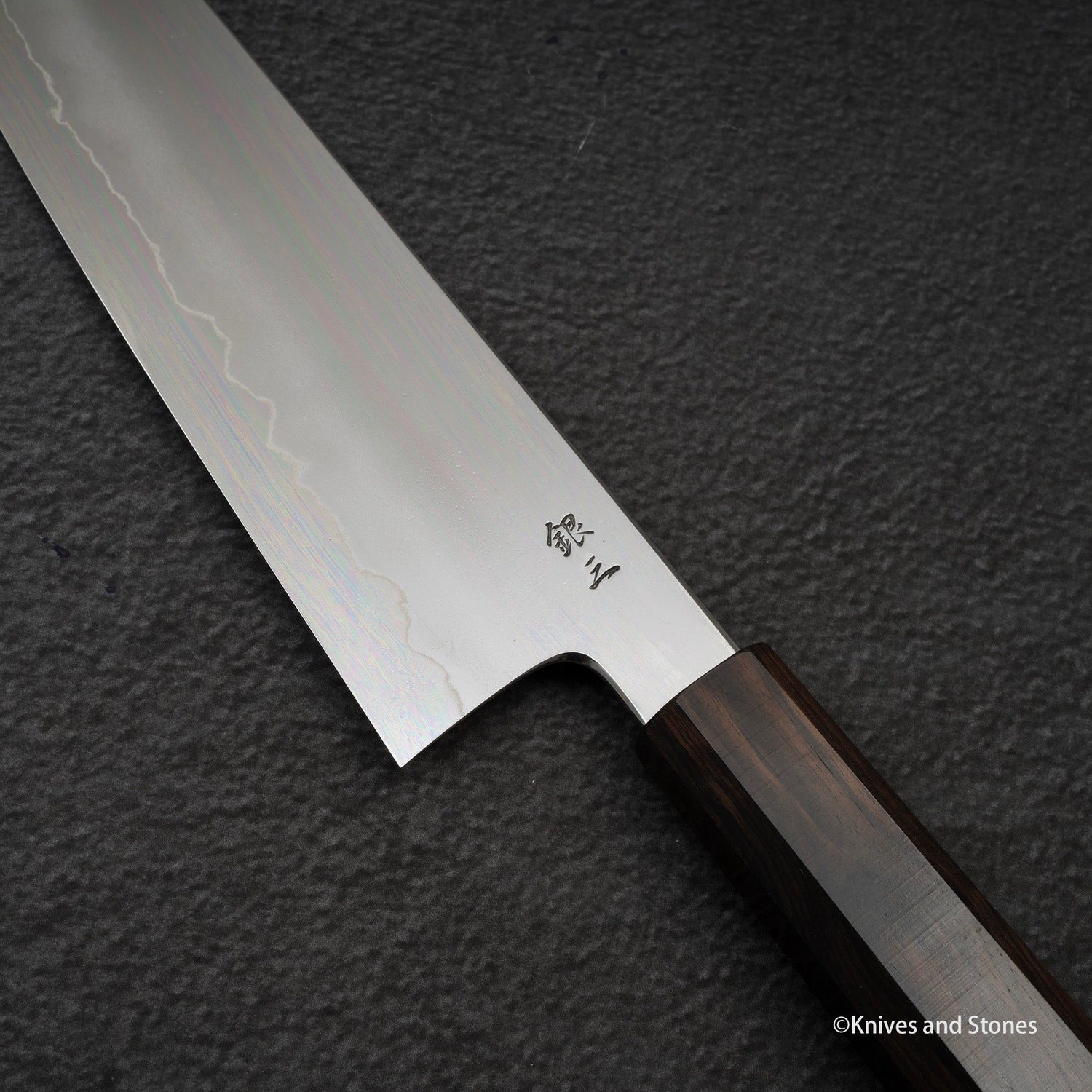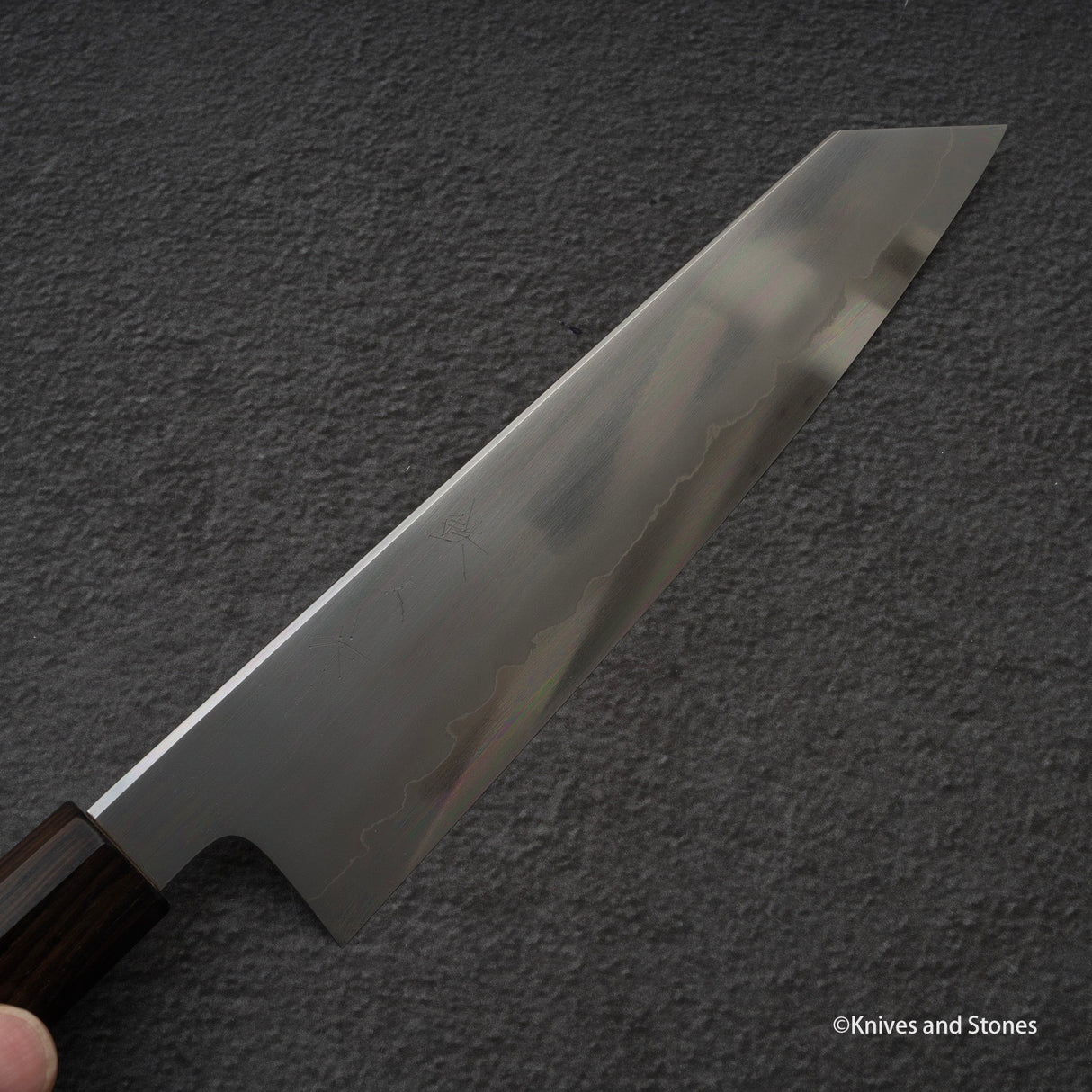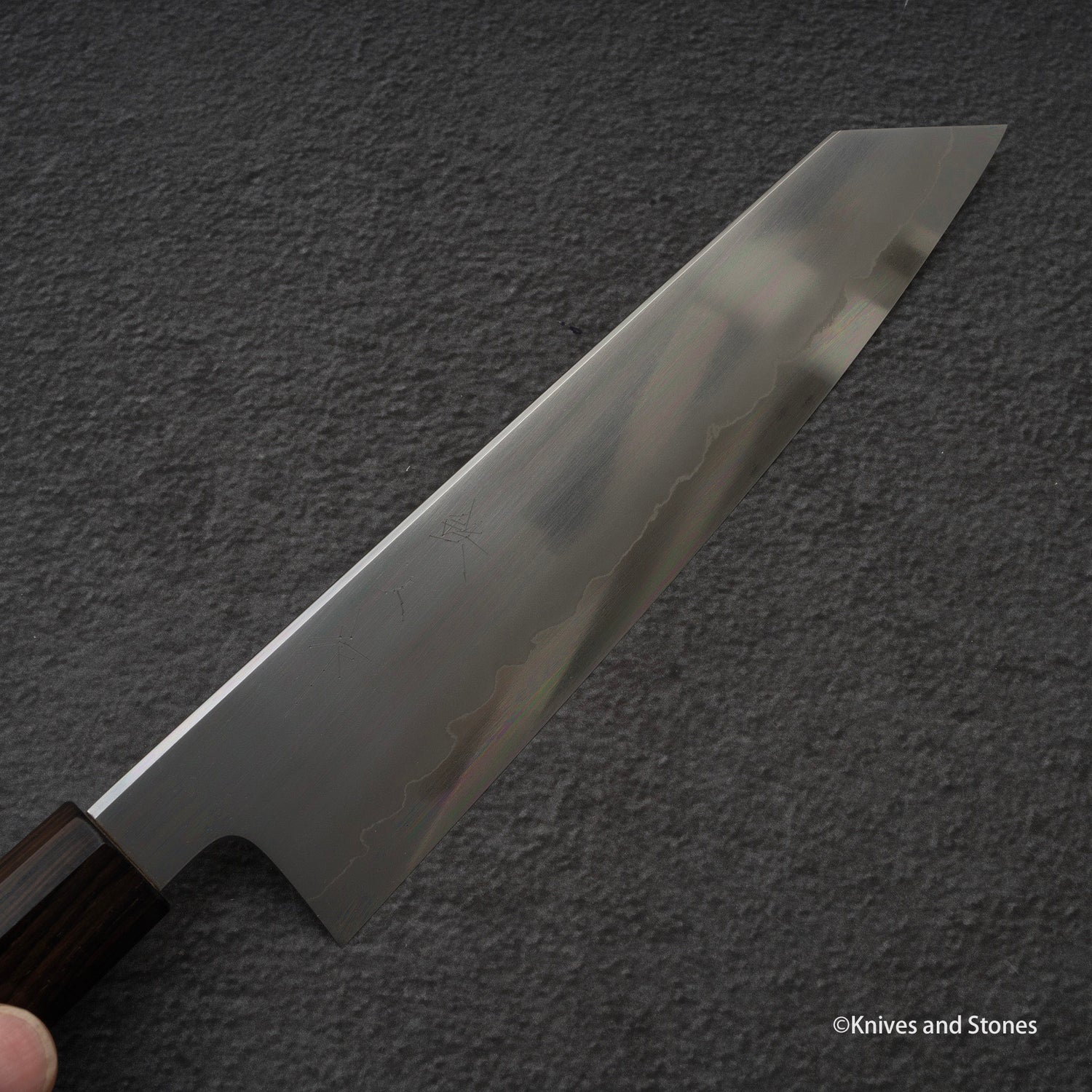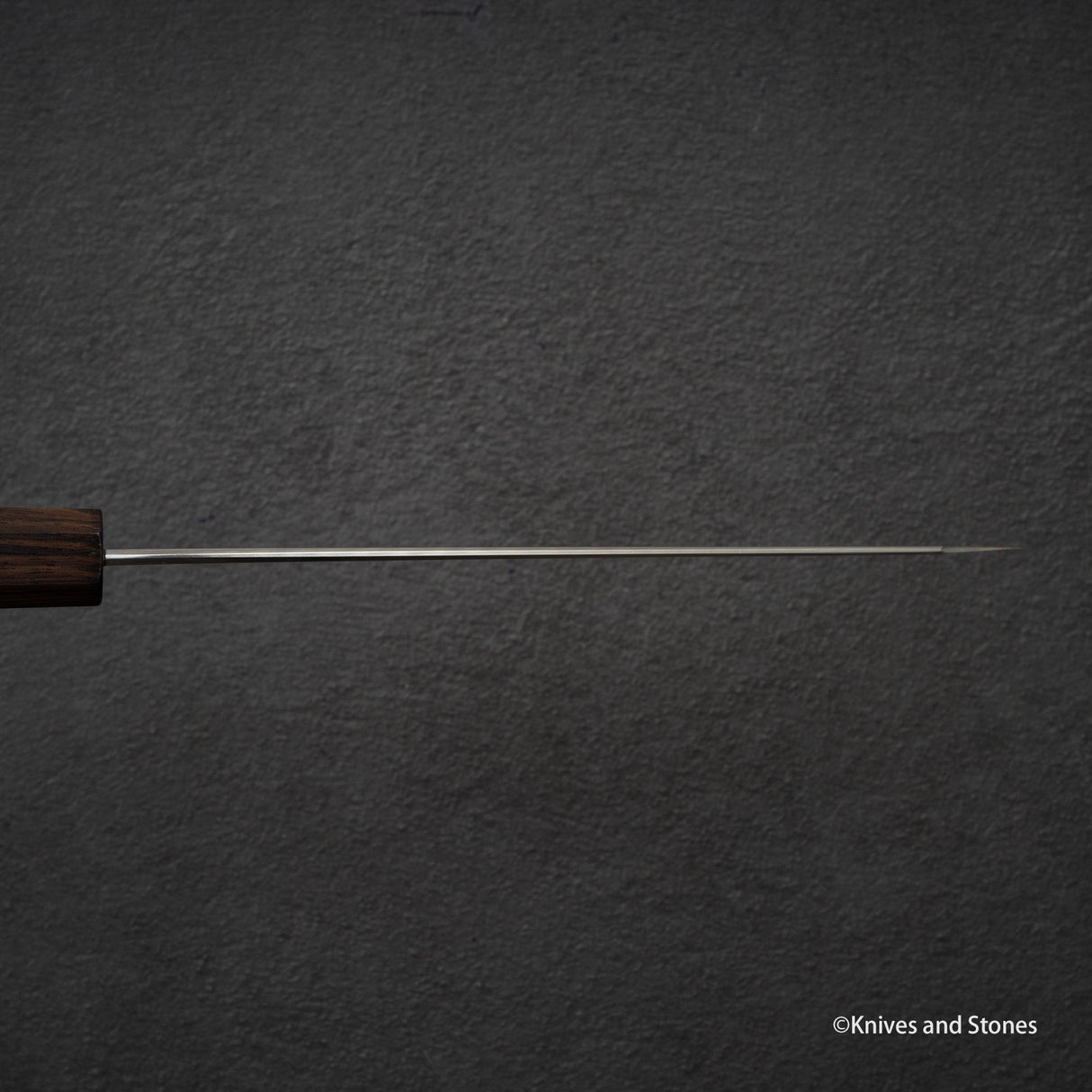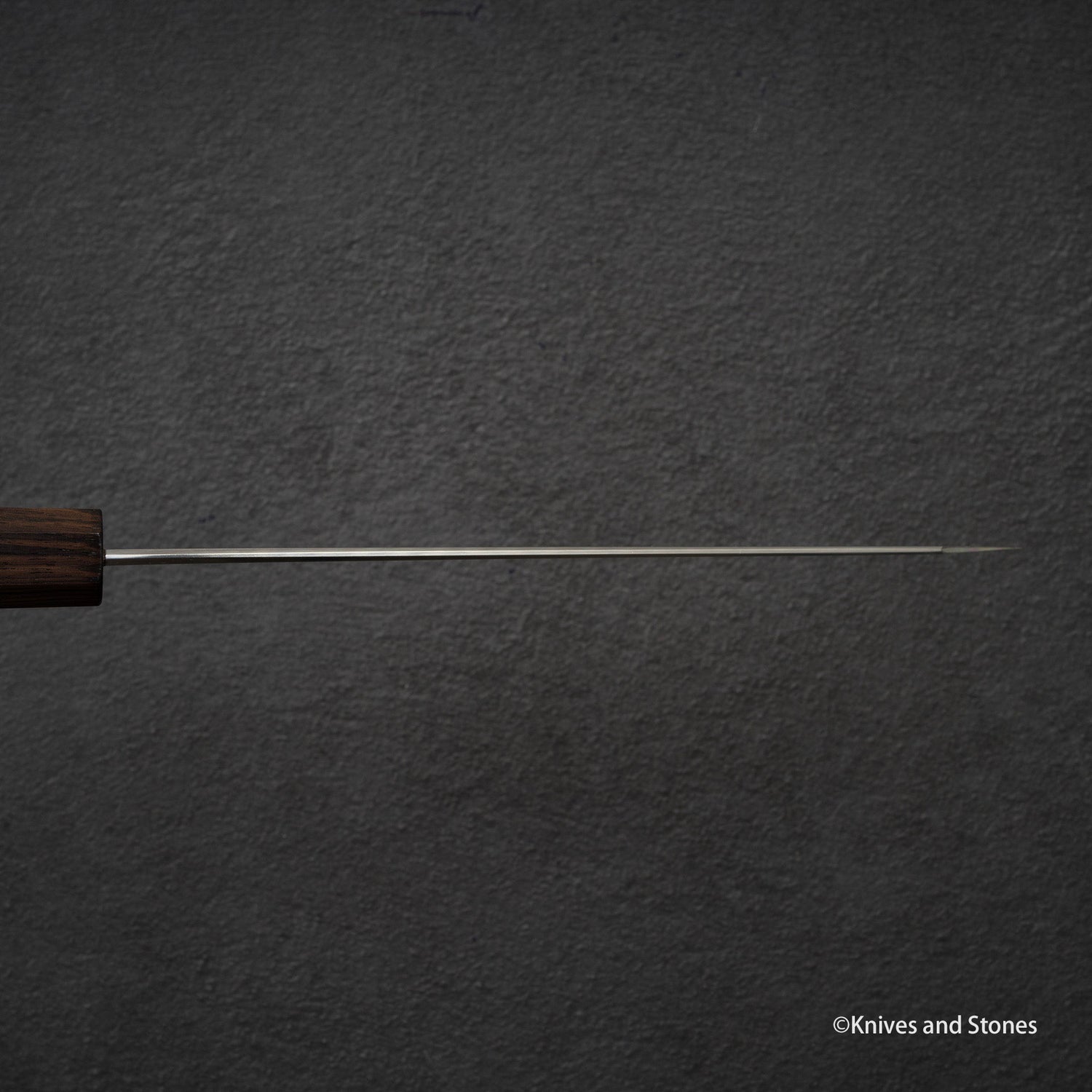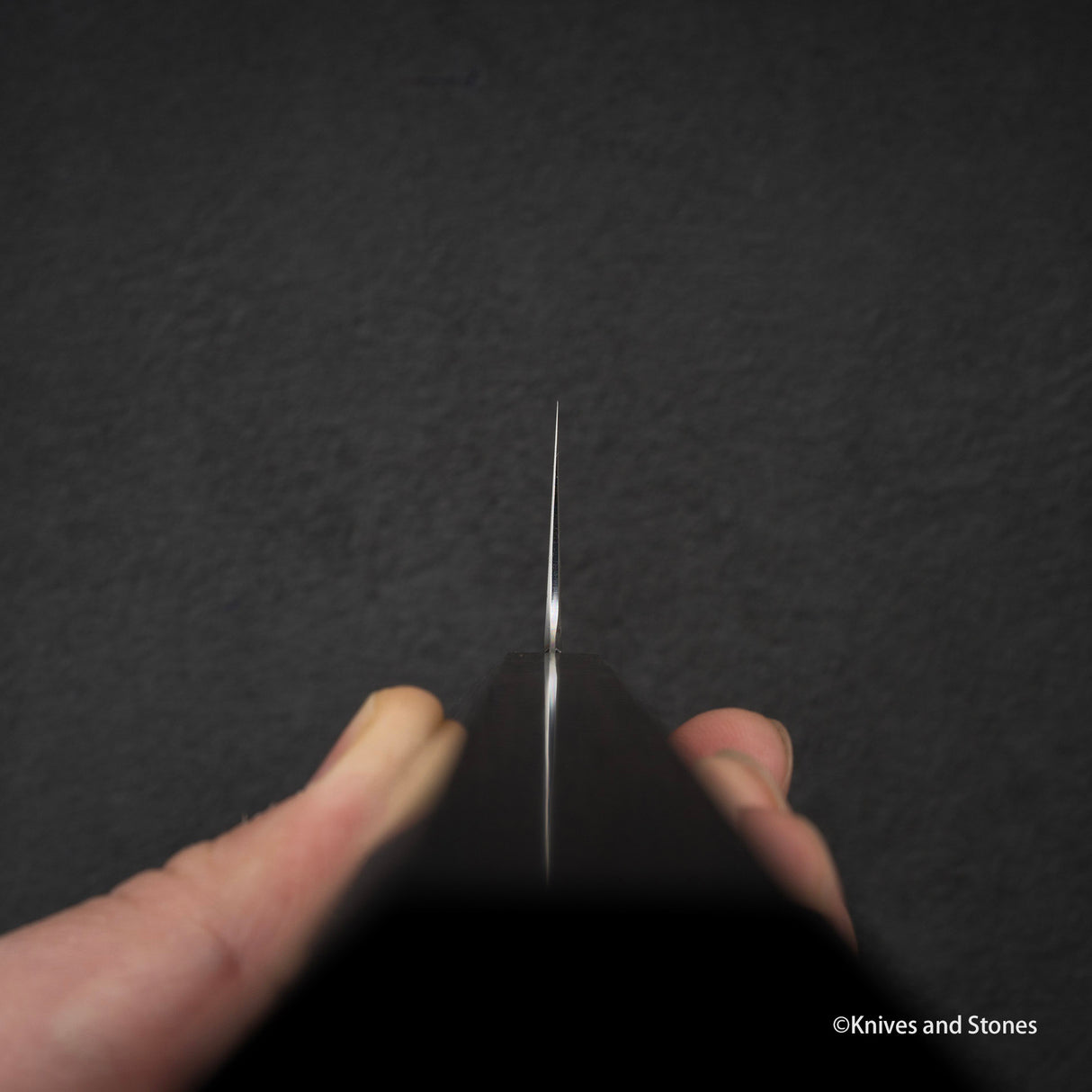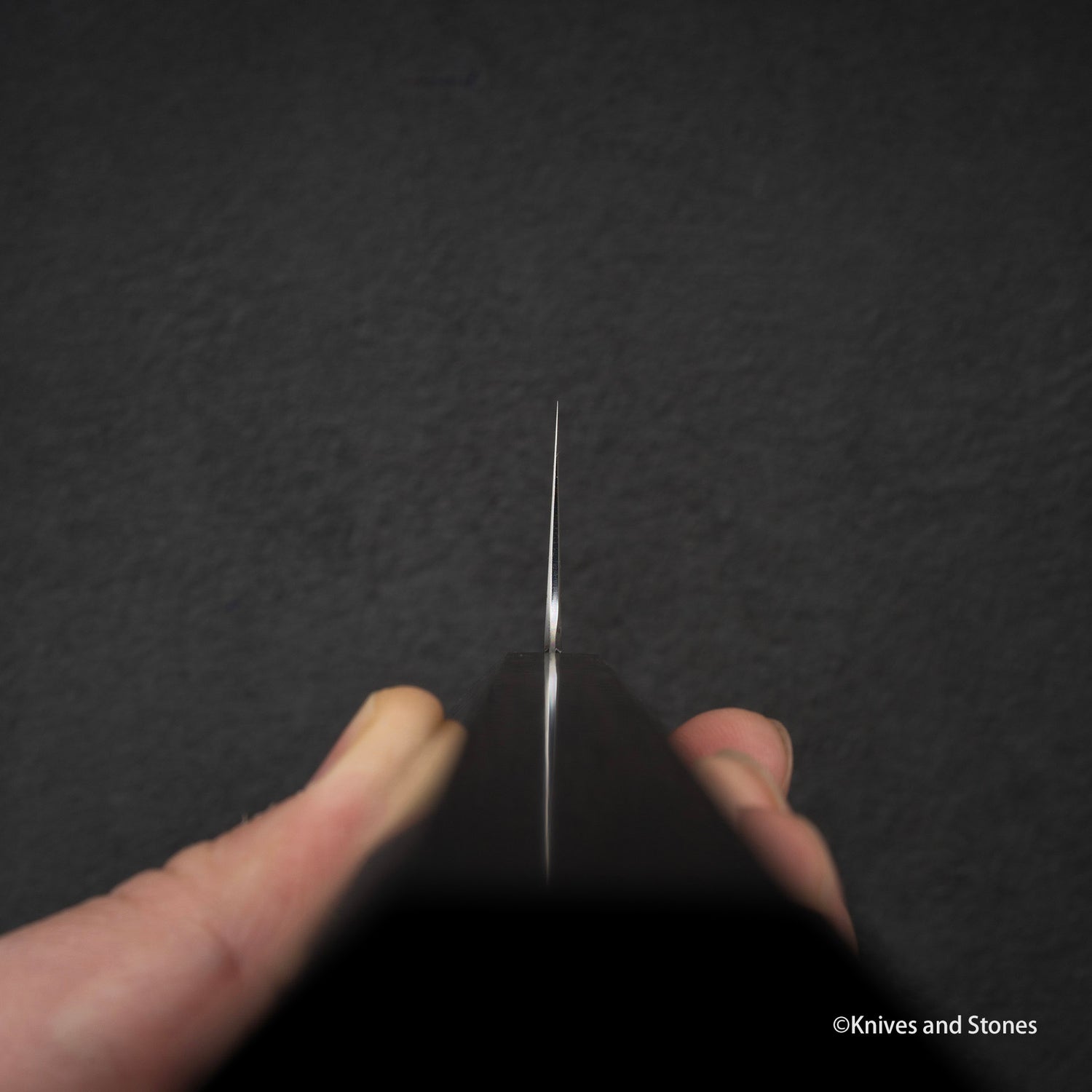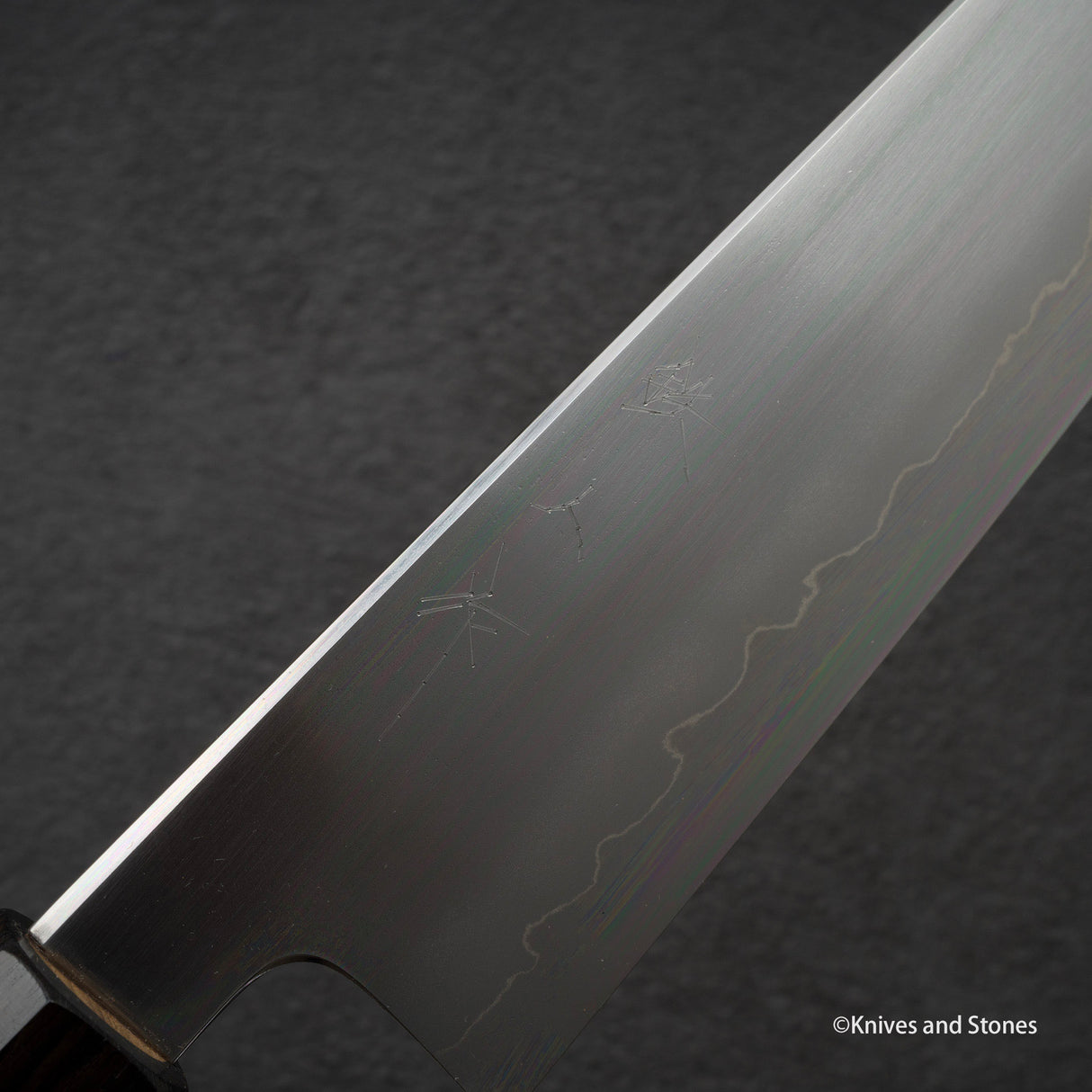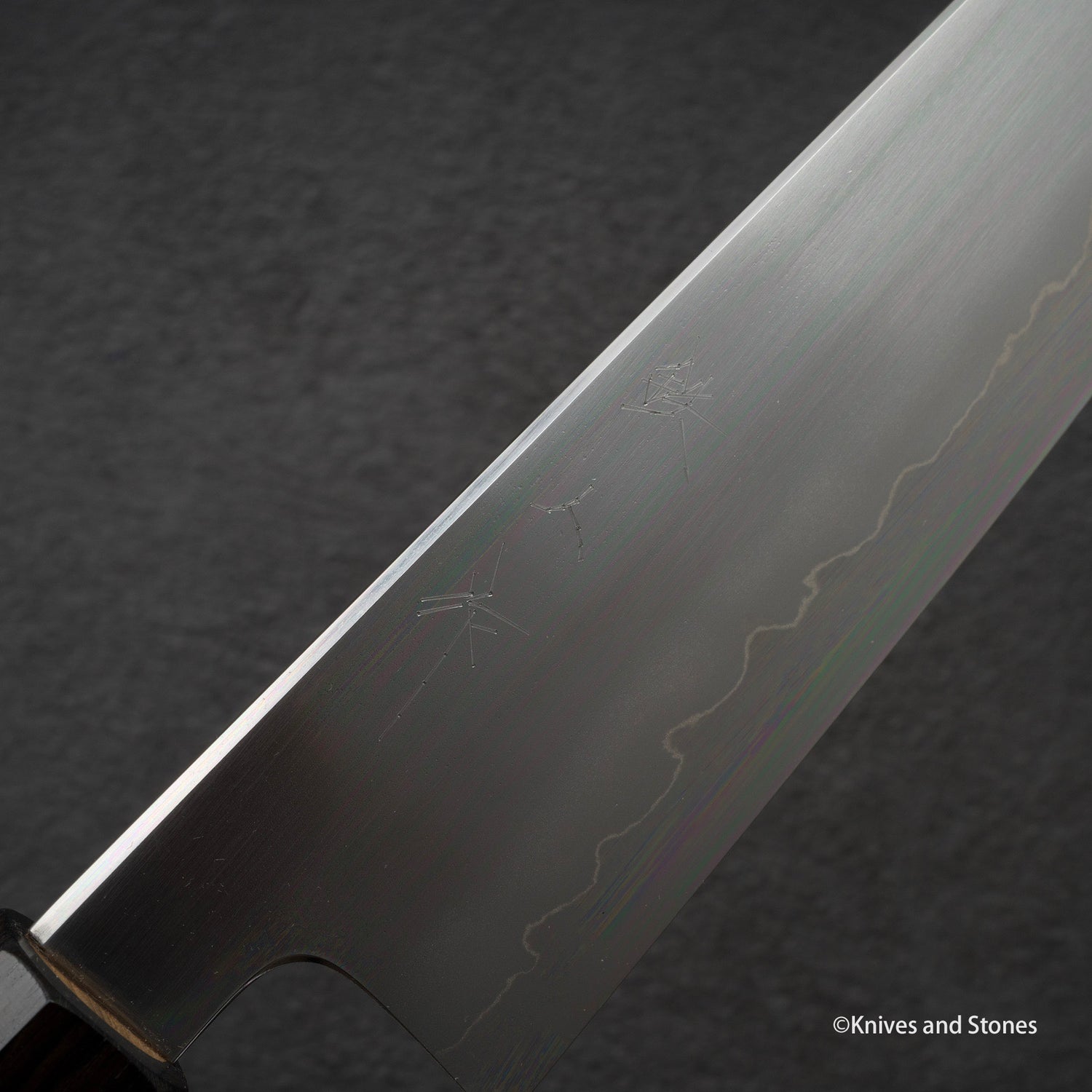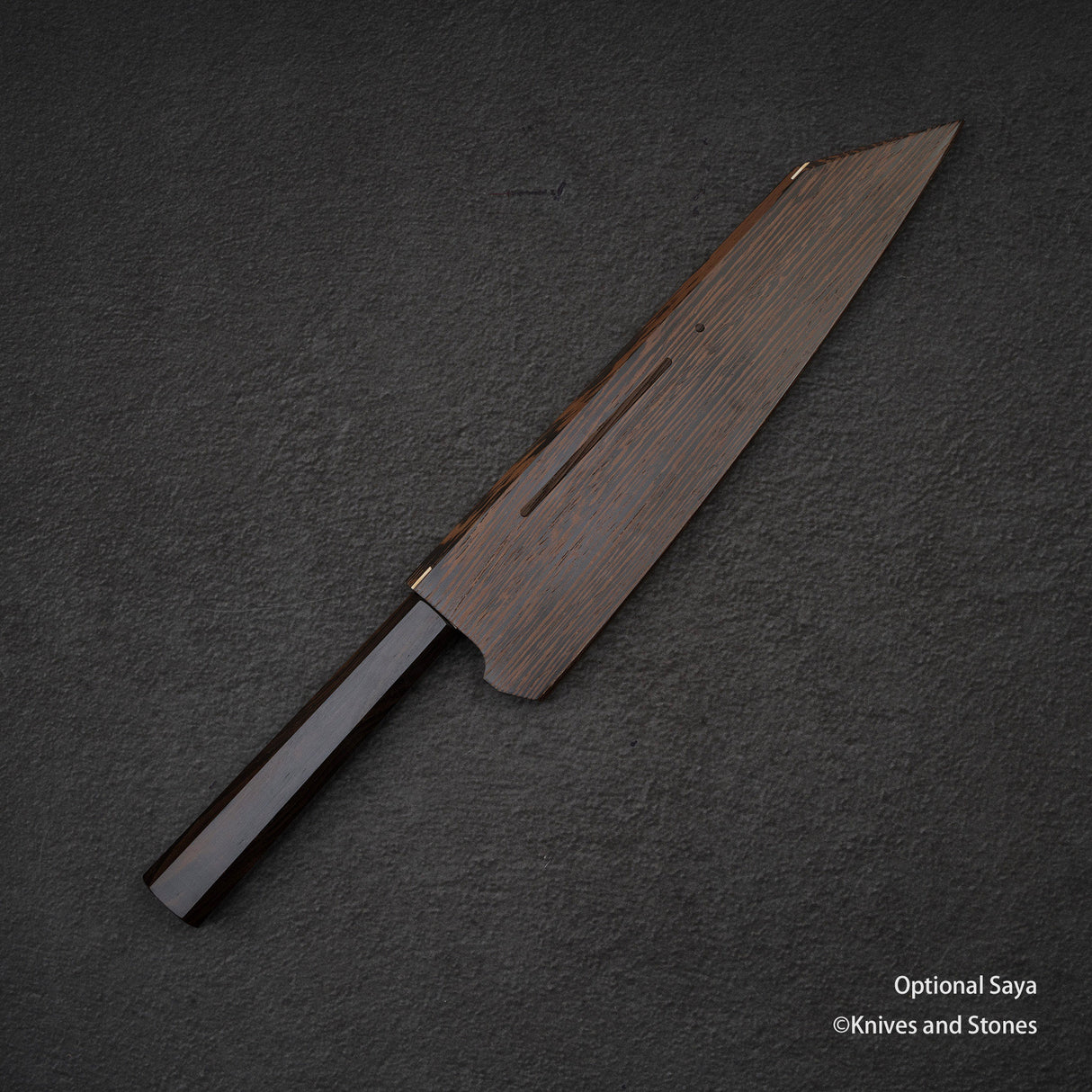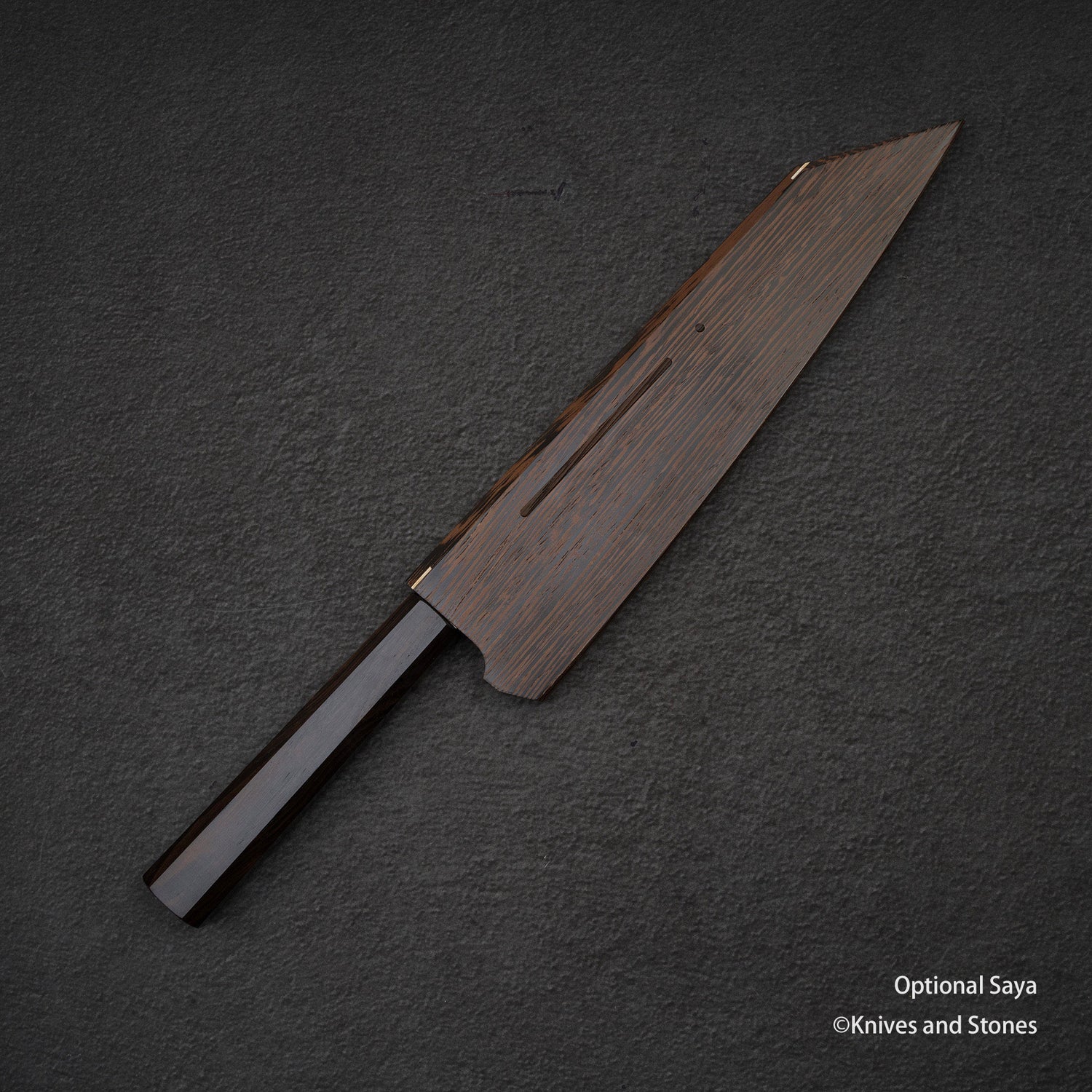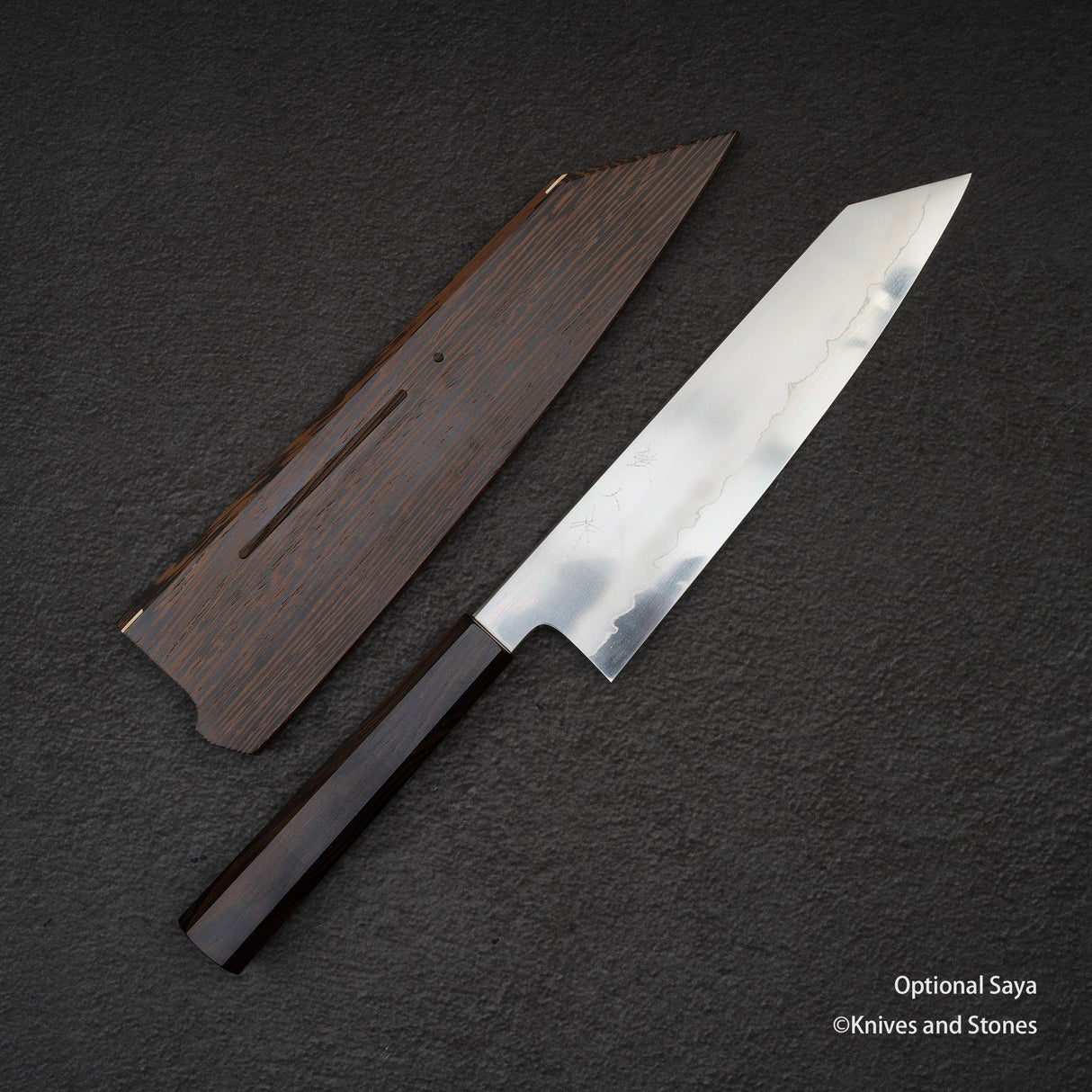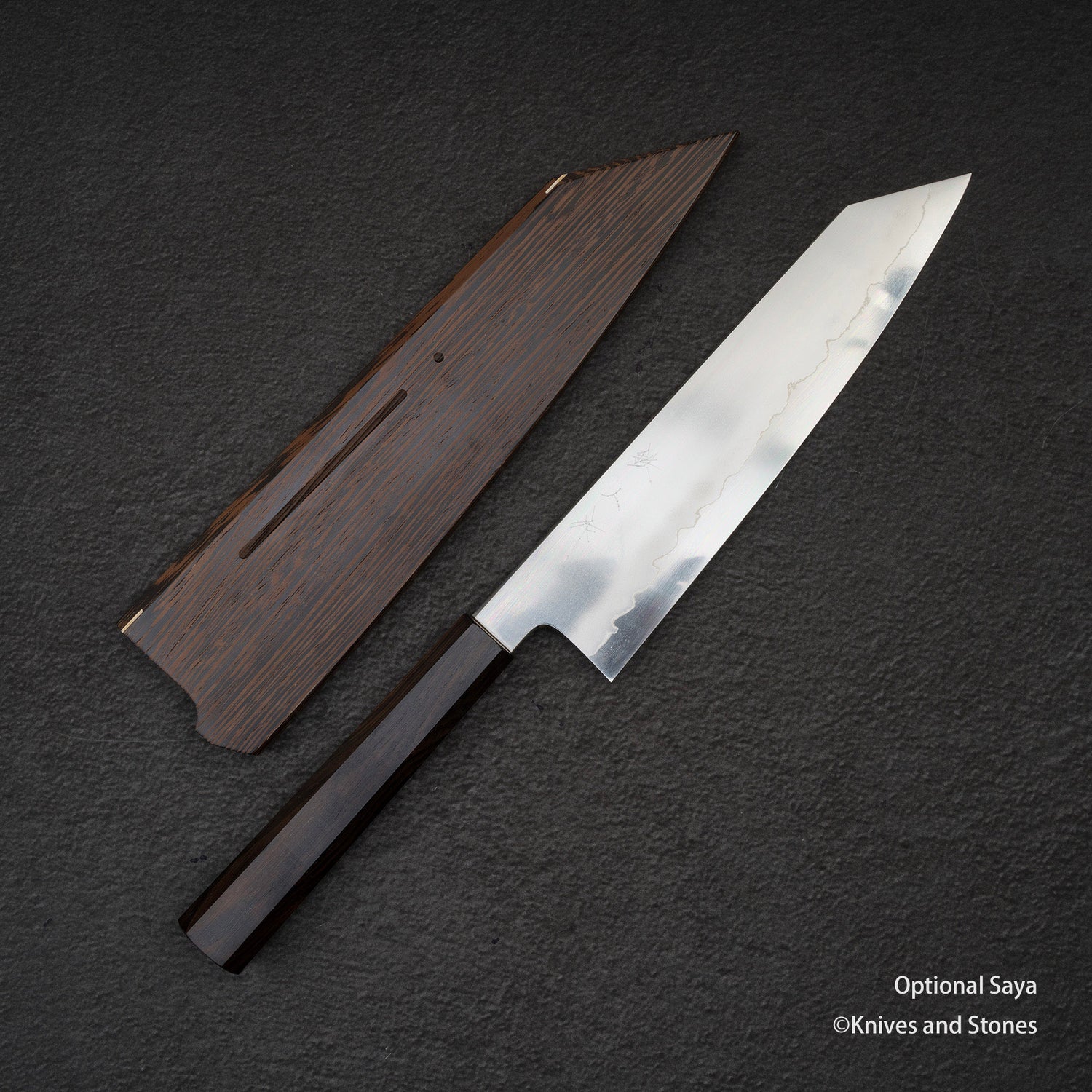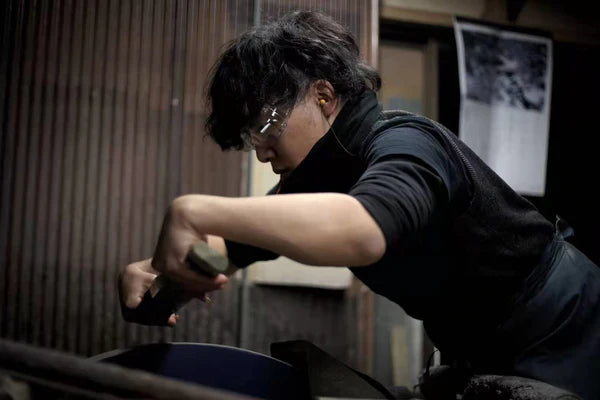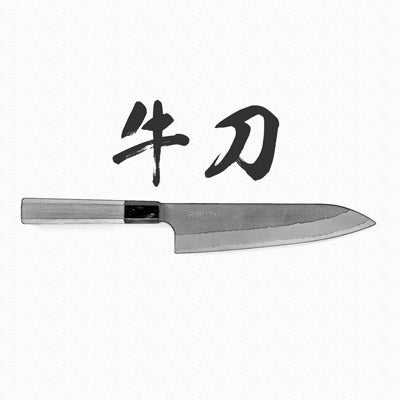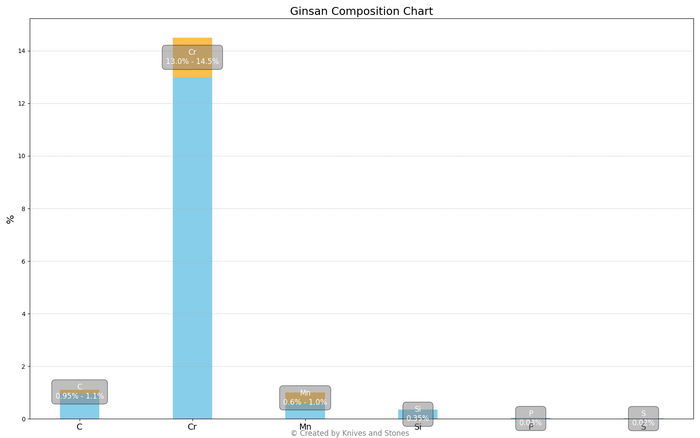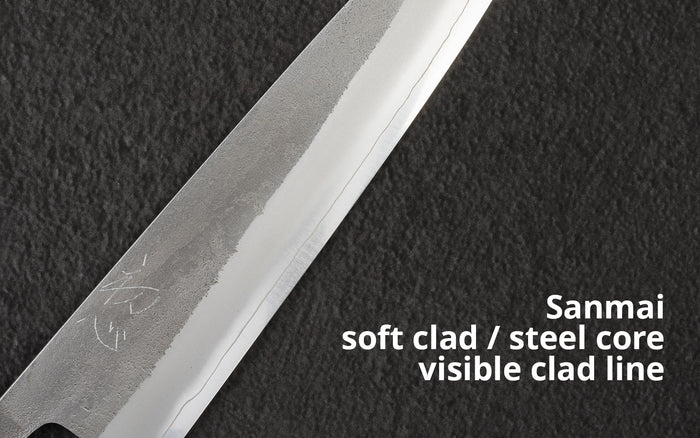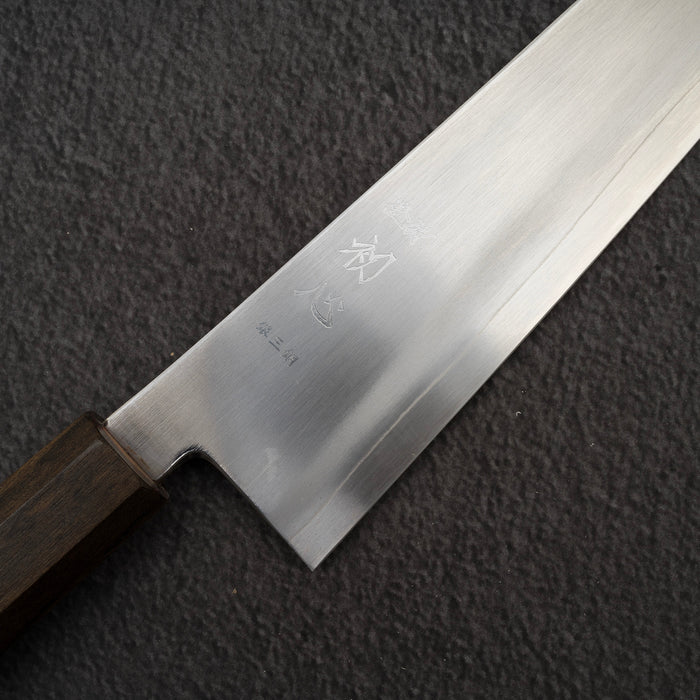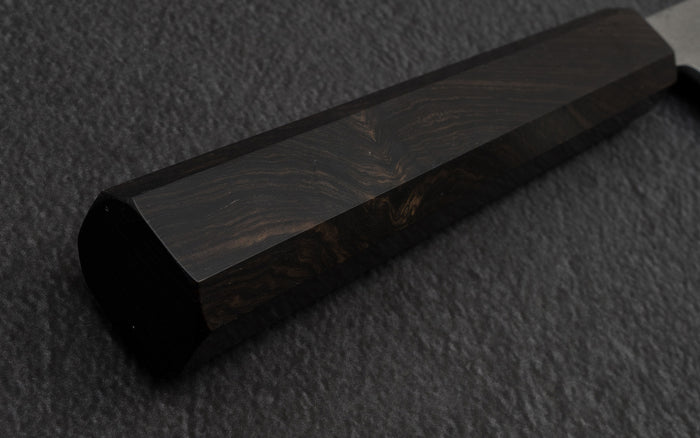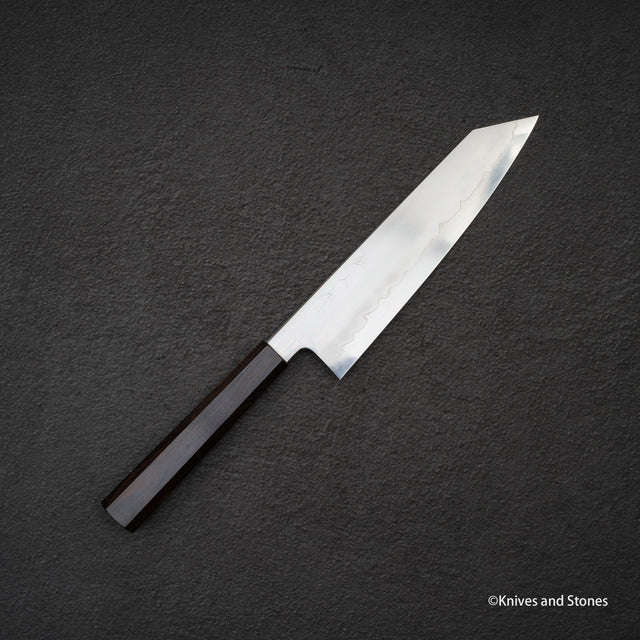Myojin Riki | SKU:
MYOJ_G3MGK_KGY210EB
Tetsujin Ginsan Ukiba K-tip Gyuto 210mm Ebony Handle
$499.95
Unit price
/
Unavailable
Tetsujin Ginsan Ukiba K-tip Gyuto 210mm Ebony Handle is backordered and will ship as soon as it is back in stock.
Couldn't load pickup availability
Set currency to AUD to view correct price matching.
K&S Price: AU $499.95* inc. tax , vs:
K&S Price: AU $499.95* inc. tax , vs:
| Hitohira JP | AU $584.0 | -17.03% |
* For overseas buyers you pay no GST (10%) and low shipping rate.
Last Update: 2025-04-18T17:07:15Z
Detailed Specifications
| Line | Tetsujin Ginsan Ukiba |
| Profile | Gyuto / Chefs Knife |
| Bevel Type | Double Bevel |
| Weight | 172 g 6.07 oz |
| Edge Length | 203 mm .7.99 inch |
| Heel Height | 47 mm .1.85 inch |
| Width @ Spine | 2.8 mm 0.11 inch |
| Width @ Mid | 2.1 mm 0.08 inch |
| Width @ 1cm from Tip | 0.5 mm 0.02 inch |
| Steel | Ginsan / Silver #3 | Stainless |
| Blade Construction | Sanmai - Stainless Clad |
| Hardness (HRC) | 60 - 62 |
| Surface Finish | Ukiba |
| Handle | Octagonal Ebony |
| Region | Tosa |
| Best for |
|

| Pros | Cons |
|
|
|
Care Instruction
- Don't cut hard things! Japanese knives are brittle so bone hacking is a NO NO!
- Wash with neutral detergent after use, and wipe dry;
- Please don't wash knife with dishwasher, it will damage the wood handle;
- Be careful not to leave the knife close to a heat source for a long time;
- It is a lot more dangerous to cut with a blunt knife than a sharp knife!
- It is best to sharpen a Japanese knife regularly on a waterstone.

